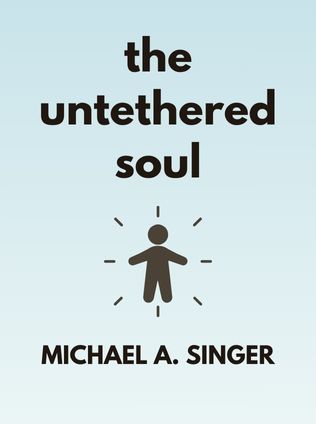
The Untethered Soul
The Journey Beyond Yourself
By Michael A. Singer
Published 10/2007
About the Author
Michael A. Singer, a profound spiritual teacher, has impacted the lives of countless individuals through his teachings on mindfulness, self-awareness, and spiritual awakening. He is the founder of the Temple of the Universe, a meditation center that welcomes people of all faiths. With a background in economics and the pioneering world of medical software, Singer’s journey took a transformative turn when he experienced a deep spiritual awakening. This awakening led him to explore the depths of consciousness and to share his insights through his writings and teachings.
Singer’s most notable work, The Untethered Soul, encapsulates his teachings on the nature of the self and the path to spiritual freedom. Through his clear and compassionate writing, Singer invites readers to look beyond the confines of the mind and to discover the infinite possibilities of living a life untethered by fear, anxiety, and the constraints of the ego. His teachings resonate with those seeking to live a more peaceful, joyous, and meaningful life.
Main Idea
The central theme of The Untethered Soul is the exploration of the self and the liberation from the constraints of the mind. Singer posits that most people live fragmented and unhappy lives because they are trapped by their thoughts, emotions, and false identities. The book provides a roadmap for awakening to one's true self, which Singer describes as the "pure experiencer" or the "witness" who observes life without attachment or judgment. By recognizing and disidentifying from the constant chatter of the mind, individuals can experience true freedom and live a life of peace, joy, and divine love.
Table of Contents
- You and Your Inner Roommate
- Disidentify from Your Roommate, Its Voice, and Its Melodrama
- Who You Really Are
- Inner Energy and Your Spiritual Heart
- Heart Blockages
- Removing Blocks and Staying Open
- Falling and Rising
- Nonresistance and Unconditional Happiness
- Metaphors and Applications
- Death, the Tao, and the Divine
You and Your Inner Roommate
In the opening chapters of The Untethered Soul, Singer introduces the concept of the "inner roommate." This inner roommate is the incessant voice in our heads that narrates our lives, often in a neurotic, critical, and fearful manner. It is this voice that most people mistakenly identify as themselves. However, Singer reveals that this inner voice is not who we truly are. Instead, it is a construct of the mind, a defense mechanism that tries to make sense of the world by filtering our experiences through a lens of fear and control.
This inner roommate is a source of much of our suffering. It constantly worries, argues, criticizes, and fears, leading us to live in a state of perpetual anxiety and discontent. By recognizing that this voice is not our true self, we take the first step toward spiritual freedom. The act of noticing the inner roommate's voice is the beginning of disidentification from it. As Singer explains, "You are not the voice of the mind—you are the one who hears it."
- Imagine waking up in the morning, and the first thing you hear is your inner roommate saying, "You didn't get enough sleep. Today is going to be rough."
- As you prepare for the day, the voice continues, "You have so much to do. How will you ever get it all done?"
- Throughout the day, this voice comments on everything, from your performance at work to your interactions with others, always with a tone of anxiety and judgment.
Disidentify from Your Roommate, Its Voice, and Its Melodrama
Once we become aware of the inner roommate, the next step is to disidentify from it. This means realizing that we are not the voice in our head, but the awareness that observes the voice. Singer encourages readers to personify this inner roommate, to see it as a separate entity that is not in control of our lives unless we allow it to be. By doing so, we can begin to take back our power and live from a place of true self-awareness rather than from the neurotic mind.
The act of disidentification is a powerful tool for spiritual growth. It allows us to observe the mind without getting caught up in its drama. As Singer eloquently states, "The moment you start to see that your mind is telling you to do something that's not in your best interest, you will naturally start to let go of it."
Sign up for FREE and get access to 1,400+ books summaries.
You May Also Like
The Subtle Art of Not Giving a F*ck
A Counterintuitive Approach to Living a Good Life
By Mark MansonRich Dad Poor Dad
What the Rich Teach Their Kids About Money - That the Poor and Middle Class Do Not!
By Robert T. KiyosakiHow To Win Friends and Influence People
The All-Time Classic Manual Of People Skills
By Dale CarnegieFreakonomics
A Rogue Economist Explores the Hidden Side of Everything
By Steven D. Levitt and Stephen J. Dubner



















